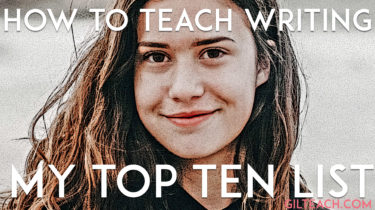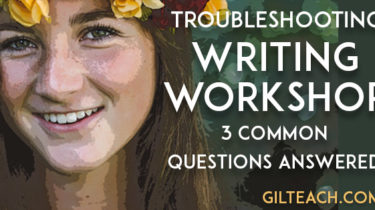How To Teach Writing: My Top Ten List
I’ve recently created a resource that combines all of my writing lesson plans—prompts, creative assignments, units on persuasive essays and personal essays and some just weird fun stuff that I think is pretty innovative. So I have been thinking a little about my philosophies on teaching writing. I remember early on in my career as a teacher, when I realized that I was doing fine with the literature and books, but that I was really lagging behind with the writing
Read more








